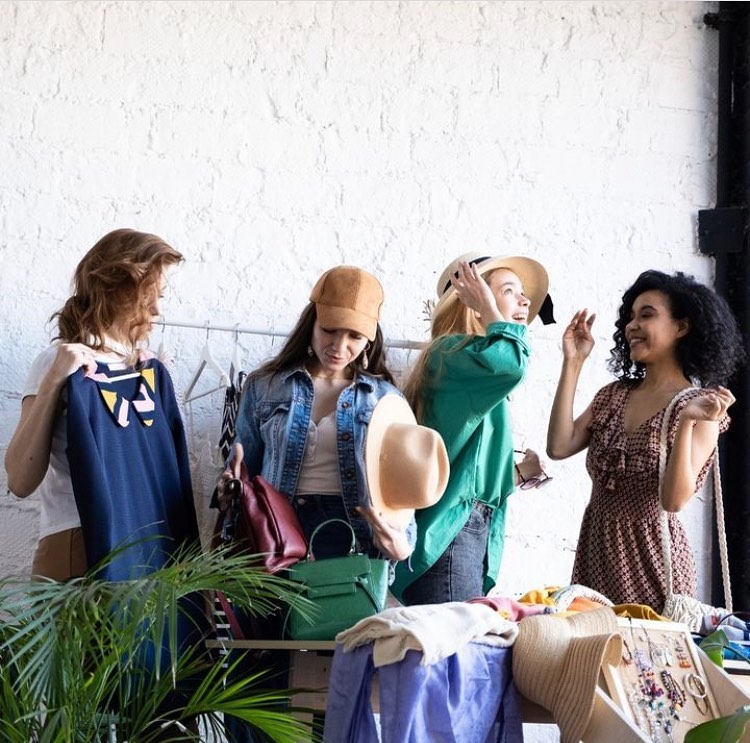New Initiative to Reduce Landfill &
Increase Circular Fashion
It’s time for the Australian fashion industry to take a stand against clothing waste. And they are doing just that with the newly launched National Clothing Product Stewardship Scheme initiative, that is intended to help Australian fashion to go circular.
Seamless is a clothing stewardship scheme that will see Australian businesses pay a 4c levy on each item of clothing they produce. This consortium is led by The Australian Fashion Council (AFC). The levy will go to fund better collection, sorting and recycling of textiles in hope to address the estimated 200,000 tonnes of Australian textiles that get landfilled each year.

This ground-breaking industry move was launched by the Minister for Environment and Water, Tanya Plibersek and is hoping to drive Australia’s Fashion industry towards circularity by 2030. The scheme aims to transform outdated business models, drive innovation in the clothing recycling industry and change citizen behaviour using the funds driven from the 4c levy fee. Businesses who sign the voluntary pledge will also commit to donating $100,000 to help fund the 12 month transition phase.
Surprisingly, only 6 of the 30 clothing brands nominated, signed up to the initiative. BIG W, David Jones, Lorna Jane, Rip Curl, R.M. Williams and THE ICONIC have all stepped up to help launch Seamless. But many more are needed to sign up to create a funding pool of $36 million to help transform the industry. Tanya Plibersek has even warned that regulation may be imposed in the future for those who don’t sign up in the next 12 months.

Australia imports around 373,000 tonnes of new clothes each year. With nearly half of this ending up in landfill yearly. Just 2 percent of old clothing gets recycled and turned into stuffing for insulation or similar uses. Many of these old textiles are also sent offshore to places like Ghana. It is here that they build up into a frightfully large textile landfill if not sold in the local market.
The hope for the Seamless scheme is that it will also encourage behaviour changes among consumers. Instead of throwing our clothing into landfill, there will be collection services for textiles. Consumers will be encouraged to buy less and focus on better quality via educational campaigns. There will be services that make it easy to care for clothing and extend their use. The Seamless scheme will enable multiple businesses and citizens to work together to collectively transform the industry from a unsustainable linear model to a more sustainable circular clothing model that will benefit the economy with new jobs and leave a lighter footprint on the environment.
Featured Image: @rentadressau

Jenna Flood, known as the Ironic Minimalist
is a slow fashion stylist and specialist in
sustainable dressing and living.
See more: How to Reuse Reduce & Recycle Your Fashion Footprint
